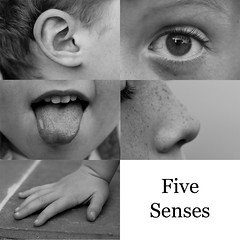AP Seminar Glossary Terms Flashcards
Terms : Hide Images [1]
| 14700720600 | alignment | Cohesion between the focus of an inquiry, the method of collecting information, the process of analysis of the information, and the conclusions made to increase understanding of that focus. | 0 | |
| 14700720601 | argument | A claim or thesis that conveys a perspective developed through a line of reasoning and supported by evidence |  | 1 |
| 14700720602 | assumption | A belief regarded as true and unstated |  | 2 |
| 14700720603 | author | One who creates a work (e.g., article; research study, foundational, literary, or philosophical text; speech, broadcast, or personal account; artistic work or performance that conveys a perspective and can be examined |  | 3 |
| 14700720604 | bias | A personal opinion, belief, or value that may influence one's judgment, perspective, or claim |  | 4 |
| 14700720605 | claim | A statement made about an issue that asserts a perspective |  | 5 |
| 14700720606 | commentary | Discussion and analysis of evidence in relation to the claim which may identify patterns, describe trends, and/or explain relationships |  | 6 |
| 14700720607 | complex issue | Topic involving many facets or perspectives that must be understood in order to address it |  | 7 |
| 14700720608 | concession | Acknowledgment and acceptance of an opposing or different view |  | 8 |
| 14700720609 | conclusion | Understanding resulting from analysis of evidence |  | 9 |
| 14700720610 | context | The intent, audience, purpose, bias, situatedness, and/or background of a source or reference |  | 10 |
| 14700720611 | conventions | stylistic features of writing (grammar, usage, mechanics) |  | 11 |
| 14700720612 | counterargument | an opposing perspective, idea, or theory supported by evidence |  | 12 |
| 14700720613 | credibility | The degree to which a source is believable and trustworthy |  | 13 |
| 14700720614 | cross-curricular | Goes beyonjd the traditional boundary of a single content area or discipline |  | 14 |
| 14700720615 | deductive | A type of reasoning that constructs general propositions that are supported with evidence or cases |  | 15 |
| 14700720616 | evidence | Information (e.g., data, quotations, excerpts from texts) used as proof to support a claim or thesis |  | 16 |
| 14700720617 | fallacy | Evidence or reasoning that is false or in error |  | 17 |
| 14700720618 | implication | A possible future effect or result |  | 18 |
| 14700720619 | inductive | A type of reasoning that presents cases or evidence that lead to a logical conclusion |  | 19 |
| 14700720620 | inquiry | A process for seeking truth, information, or knowledge through a study, research investigation, or artistic endeavor/work |  | 20 |
| 14700720621 | interdisciplinary | Involving two or more areas of knowledge |  | 21 |
| 14700720622 | issue | Important problem for debate or discussion |  | 22 |
| 14700720623 | lens | Filter through which an issue or topic is considered or examined |  | 23 |
| 14700720624 | limitation | A boundary or point at which an argument or generalization is no longer valid |  | 24 |
| 14700720625 | line of reasoning | Arrangement of claims and evidence that leads to a conclusion |  | 25 |
| 14700720626 | literature | The foundational and current texts of a field or discipline of study |  | 26 |
| 14700720627 | perspective | A point of view conveyed through an argument |  | 27 |
| 14700720628 | plagiarism | Failure to acknowledge, attribute, and/or cite any ideas or evidence taken from another source |  | 28 |
| 14700720629 | point of view | A position or standpoint on a topic or issue |  | 29 |
| 14700720630 | primary source | An original source of information about a topic (e.g., study, artifact, data set, interview, article) |  | 30 |
| 14700720631 | qualification | A condition or exception |  | 31 |
| 14700720632 | qualitative | Having to do with text, narrative, or descriptions |  | 32 |
| 14700720633 | quantitative | Having to do with numbers, amounts, or quantities |  | 33 |
| 14700720634 | rebuttal | Contradicting an opposing perspective by providing alternate, more convincing evidence |  | 34 |
| 14700720635 | refutation | Disproving an opposing perspective by providing counterclaims or counterevidence |  | 35 |
| 14700720636 | reliability | The extent to which something can be trusted to be accurate |  | 36 |
| 14700720637 | resolution | The act of solving a problem or dispute |  | 37 |
| 14700720638 | secondary source | A commentary about one or more primary sources that provides additional insight, opinions, and/or interpretation about the primary source data, study, or artifacts |  | 38 |
| 14700720639 | sequencing | The organization of curriculum content into an order which progresses from simple to more complex |  | 39 |
| 14700720640 | solution | A means of answering a question or addressing a problem or issue |  | 40 |
| 14700720641 | text | Something composed (e.g., articles; reearch studies; foundational, literary, and philosophical texts; speeches, broadcasts, and personal accounts; artistic works and performances) that conveys a perspective and can be examined |  | 41 |
| 14700720642 | thesis | A claim or position on an issue or topic put forward and supported by evidence |  | 42 |
| 14700720643 | tone | The way in which an author expresses an attitude about his or her topic or subject through rhetorical choices |  | 43 |
| 14700720644 | validity | The extent to which an argument or claim is logical |  | 44 |
| 14700720645 | vocal variety | Changing vocal characteristics (e.g., pitch, volume, speed) in order to emphasize ideas, convey emotion or opinion, or achieve other specific purposes |  | 45 |
